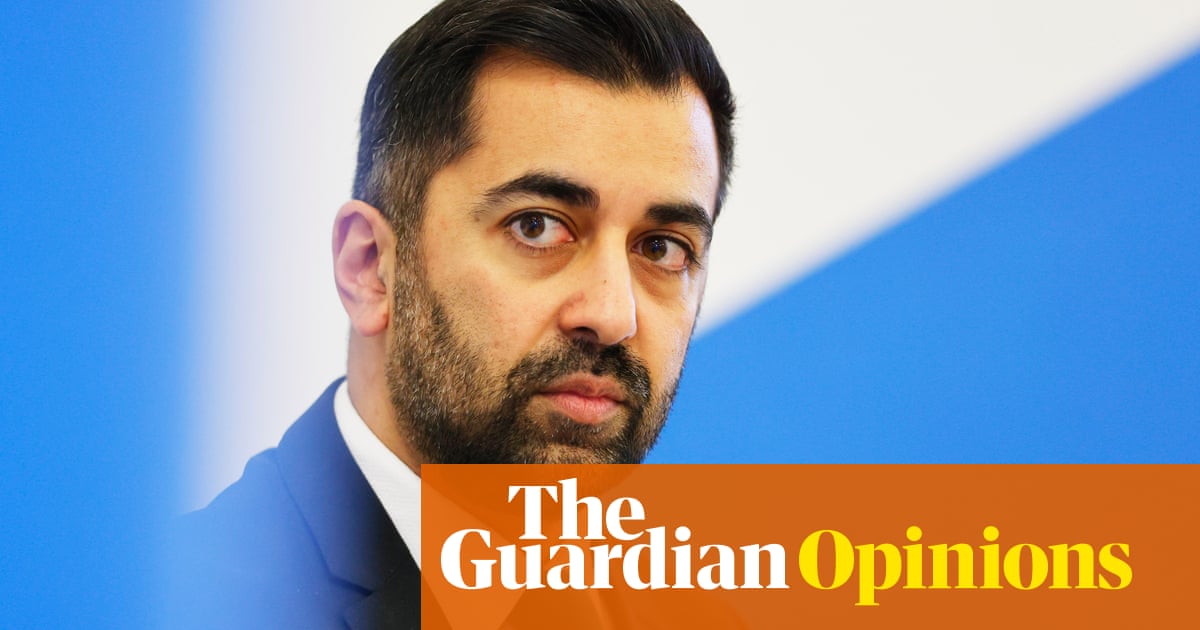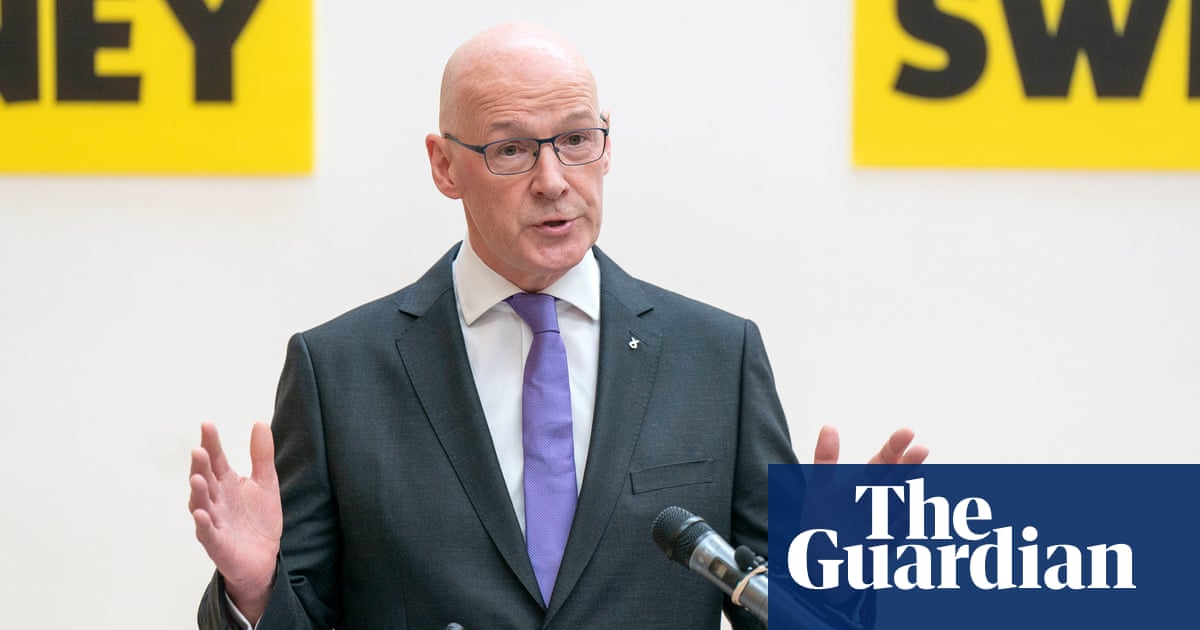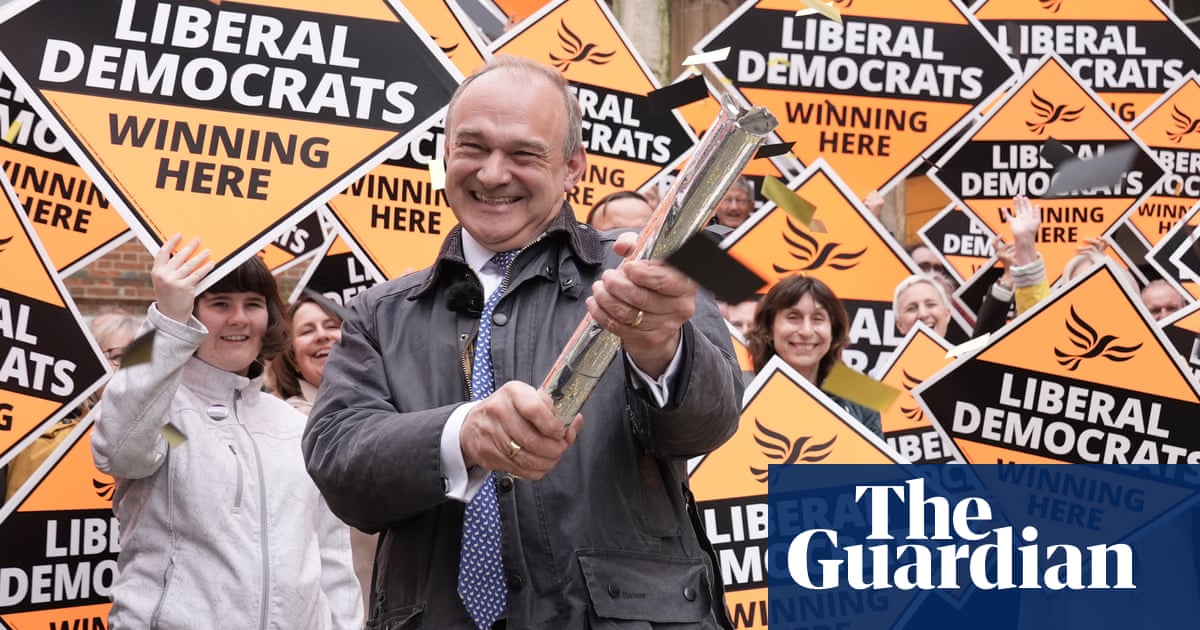The Guardian view on the SNP-Greens split: an unsurprising but costly rift | Editorial


A year ago, Scotland’s newly elected first minister, Humza Yousaf, said that the Scottish National party’s 2021 pact with the Scottish Greens – giving him a majority in the Holyrood parliament – was “worth its weight in gold”. As recently as Tuesday, Mr Yousaf was publicly buffing his treasure, insisting that he hoped the deal would continue. Less than 48 hours later, however, he decided it was time to sell, scrapping the pact and pledging instead to lead a minority SNP government for the remaining two years of this Scottish parliament. Shortly afterwards, the furious Greens vowed to back next week’s Conservative motion of no confidence against the man who had “betrayed” them.
The split is no surprise. Last week, the Scottish government scrapped its pledge of a 75% cut in carbon emissions by 2030, and its legally binding annual reduction targets. It did so after the UK Climate Change Committee declared the target “no longer credible” because not enough groundwork had been done. The Scottish Greens reacted with anger; an emergency meeting was planned for May to decide whether to continue in government. Meanwhile, some SNP backbenchers made clear that they had had enough too. On Thursday, anxious to show decisive leadership, Mr Yousaf got in first, dumping the deal.
Though the resulting confidence vote is nonbinding, Mr Yousaf cannot afford to lose it. He will need the backing of every MSP in a deeply divided party and, more trickily, of the former SNP minister Ash Regan, who defected to Alex Salmond’s Alba party last year over the SNP’s approach to gender reform and independence. She is already preparing her demands.
Both the causes and consequences of the coalition’s rupture go far beyond the response to the climate emergency, immensely important though this is. It had increasingly faced credibility problems in other areas of policy and government too, with a tendency to legislate ambitiously and to consider the implementation problems, and sometimes the public’s anxieties, only afterwards.
If Mr Yousaf expected the Greens to compromise on climate targets and trans issues, he badly miscalculated. Their opposition to doing so was not the only cause of the breakdown. The policies were implemented by an overwhelmingly SNP government, anxious to weave the Greens into a pro-independence coalition. The price for that has finally proved too high. Mr Yousaf has made mistakes of his own, but some also derive from Nicola Sturgeon, with whose governments he promised continuity.
The SNP has too often tried to govern as though Scotland is an independent country whose problems are always the UK’s fault, rather than focusing on delivering effective and transparent government in areas such as housing, health, education and policing. Those problems have now come home to roost with Mr Yousaf. But his most damaging inheritance is the police’s Operation Branchform investigation into the SNP’s finances. Last week, the SNP’s former chief executive Peter Murrell, Ms Sturgeon’s husband, was charged with embezzlement.
The SNP’s difficulties are real, though sometimes overstated by its rivals. (It has governed as a minority before, when Mr Salmond relied on Conservative votes after 2007.) But after being in power for 17 years, it is no surprise that its problems have accumulated, especially when the party’s reason for existing – independence – remains so distant. Mr Yousaf’s short leadership now hangs in the balance.
-
Do you have an opinion on the issues raised in this article? If you would like to submit a response of up to 300 words by email to be considered for publication in our letters section, please click here.




